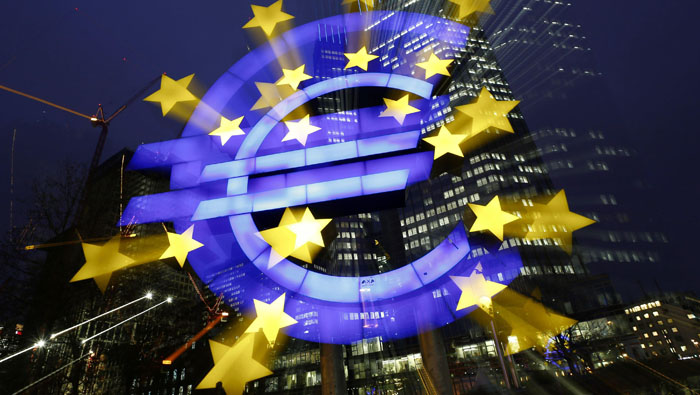
Frankfurt/London: If Britons vote to leave the European Union, London's financial centre faces losing one of its top money spinners — the trade in trillions of euros in derivatives — and the European Central Bank (ECB) will be pushing hard for the business to move onto its patch.
According to eurozone central bank officials, the ECB is determined to tackle an anomaly dating from 1999 when Britain opted out of the euro's launch: a dominant share of trading in the currency it issues goes on outside its jurisdiction in London.
Eurozone officials are reluctant to discuss publicly such a sensitive issue — and the risk that London could lose out to rivals Frankfurt and Paris — before the June 23 referendum on a British exit from the European Union.
But Christian Noyer, a former ECB vice president and Bank of France governor, is free to make the case as he no longer holds a high office in the eurozone. "If Britain left the EU, the euro area authorities could no longer tolerate such a high proportion of financial activities involving their currency taking place abroad," he said.
"It is already very difficult for euro members to accept that our currency is largely traded outside the currency area, beyond the control of the ECB," Noyer wrote in an article for economic think tank OMFIF.
Two eurozone central bank officials, requesting anonymity, made the same points. The trading of euro-based securities spans trillions of euros of derivatives deals as well as the 'repo' market providing short-term funding for banks — €2 trillion of which experts say is based in London. On top of this, there is foreign exchange trading in the currency itself.
The Frankfurt-based ECB wants oversight of this business for a practical reason: if any disaster were to hit these markets like the 2008 collapse of Lehman Brothers bank in the United States, it would be responsible for dealing with the crisis. The ECB declined to comment on the derivatives oversight issue.
Outlier status
Supporters of a British exit from the EU say predictions of London's demise as a financial centre when it failed to adopt the common currency proved wrong, and the same would be true in the event of a ‘Brexit’.
So far, campaigning has focused on issues ranging from immigration to the Brussels bureaucracy, with Brexit supporters arguing that the EU has moved far from the bloc's original aim of merely boosting trade within Europe.
However, the City of London remains a major employer and accounts for 12 per cent of the British economy, generating roughly £66 billion ($93 billion) in tax revenue a year for a cash-strapped exchequer.
So far, Britain's EU membership has helped London to maintain its position as Europe's financial capital, with the result that the ECB is set apart in one crucial respect from the Bank of England, the Bank of Japan and United States Federal Reserve.
"In big currency areas — including sterling, yen, dollar — the central bank has a significant hold on trading in the domestic currency," said Nicholas Veron, EU financial services expert at the Bruegel think tank in Brussels.
"The euro zone is an outlier and that is supported by the EU framework but if that is no longer there, this outlier status might not be sustainable," Veron added.
The ECB has already tried to assert its authority, insisting that clearing houses that process euro derivative trades should be based in the 19-nation currency bloc. Britain mounted a legal challenge to defend its financial sector and won at the EU's second-highest court last year.